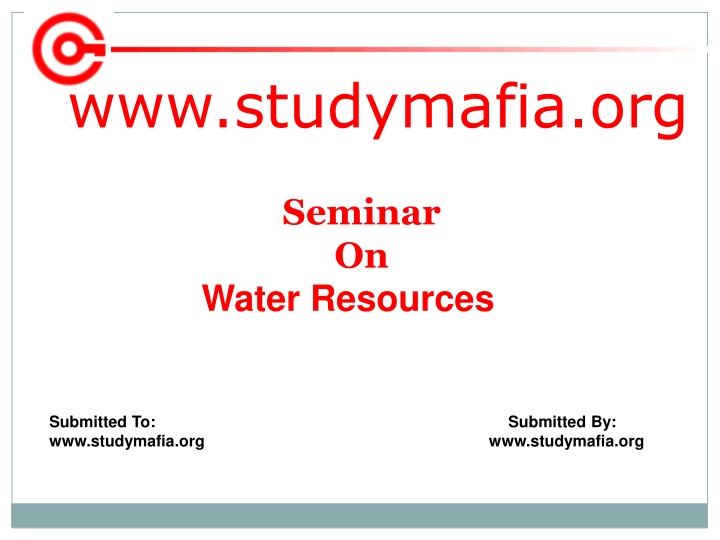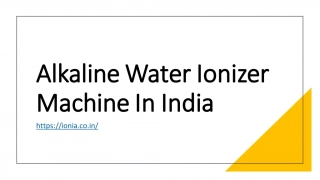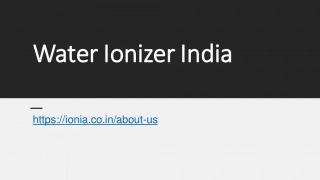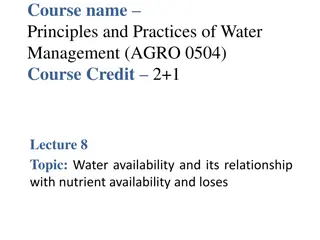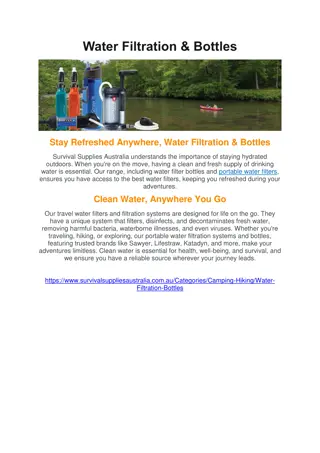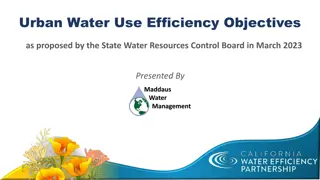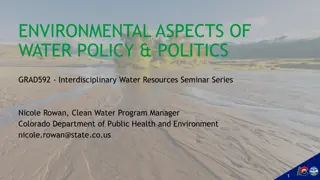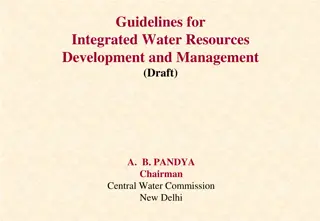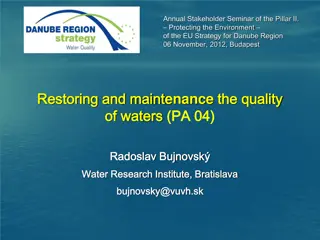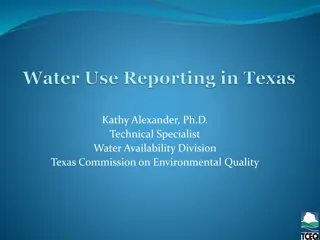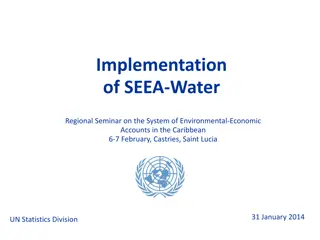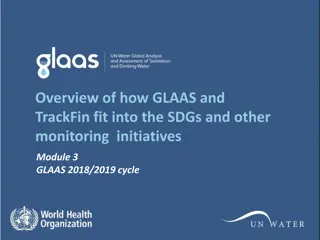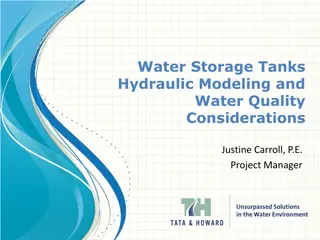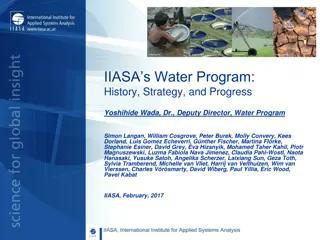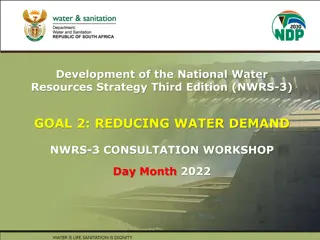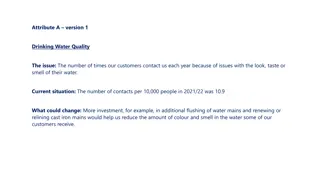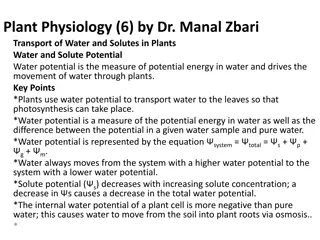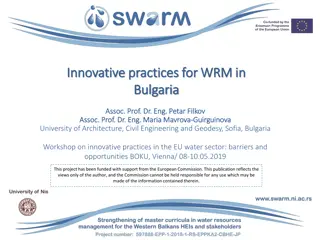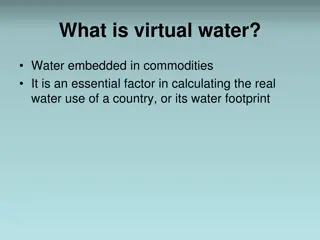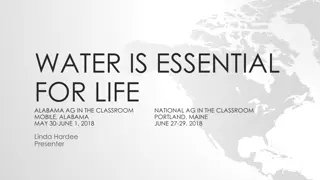Seminar on Water Resources and Their Importance
This seminar explores various aspects of water resources, including sources of fresh water, uses of water in different sectors, and the distribution of water on Earth. It discusses the technologies used to provide fresh water and how people utilize water resources. The importance of water resources for sustaining life and addressing global challenges is also highlighted.
Download Presentation

Please find below an Image/Link to download the presentation.
The content on the website is provided AS IS for your information and personal use only. It may not be sold, licensed, or shared on other websites without obtaining consent from the author.If you encounter any issues during the download, it is possible that the publisher has removed the file from their server.
You are allowed to download the files provided on this website for personal or commercial use, subject to the condition that they are used lawfully. All files are the property of their respective owners.
The content on the website is provided AS IS for your information and personal use only. It may not be sold, licensed, or shared on other websites without obtaining consent from the author.
E N D
Presentation Transcript
www.studymafia.org Seminar On Water Resources Submitted To: www.studymafia.org www.studymafia.org Submitted By:
Content Introduction Sources of Fresh water Uses Of Water Importance of Water Resources Distribution of water on Earth Technologies Used to Provide Fresh Water How do people use Water Resources? Conclusion References
About Water 97% of the water on the Earth is salt water. However, only 3% percent is fresh water; slightly over 2/3 of this is frozen in glaciers and polar ice caps. The remaining unfrozen freshwater is found mainly as groundwater, with only a small fraction present above ground or in the air. Fresh water is a renewable resource
Sources of Fresh water 1. Surface water 2. Frozen water 3. Ground water 4. Rain water
Surface water Surface water is water in a river, lake or fresh water wetland. Surface water is naturally replenished by precipitation and naturally lost through discharge to the oceans and evaporation.
Frozen water Several schemes have been proposed to make use of icebergs as a water source, however to date this has only been done for novelty purposes. The Himalayas, which are often called "The Roof of the World", contain some of the most extensive and rough high altitude areas on Earth as well as the greatest area of glaciers and permafrost outside of the poles
Uses Of Water Industrial Agriculture Household
Importance of Water Resources Below mentioned is the importance of water resources in points:- It is significant since life cannot survive without it. Agricultural, commercial, household, leisure, and environmental activities all use water in some way. Almost all of these human uses necessitate the use of freshwater. Freshwater makes up just 2.5 percent of the Earth's total water, and over two-thirds of it is frozen in ice caps and glaciers. In several regions of the world, water demand currently exceeds availability, as well as many other areas, are prepared to face this deficit in the near future. Irrigation in agriculture is expected to account for 70% of global water consumption.
Technologies Used to Provide Fresh Water Reclaimed Water The method of turning wastewater into water that can be recycled and reused for other purposes is known as water reclamation (also known as wastewater reuse. Irrigating gardens and farm areas, as well as replenishing surface and groundwater, are examples of reuse (i.e., groundwater recharge). Desalination Desalination is a man-made process that converts saline water (usually seawater) to freshwater. Reverse and distillation osmosis is the most popular desalination method. Desalination is actually more costly than most alternative water sources, and it only covers a small portion of overall human consumption. In arid regions, it is normally only economically feasible for greater uses (including certain household and industrial applications).
How do people use Water How do people use Water Resources? Resources? Divide Household Household Personal Use Personal Use Recreational Recreational activities activities Washing the teeth Drinking water Take a shower Going to the bathroom Walk in the pool for recovering health Washing dishes Fill the car with water Watering the plants Putting out the fire Give water for the cows Watering the grass Washing the car Go to the pool. Go to the beach. Walk in the pool for recovering health. Skiing in the mountains. Fish in the lakes. Play with a ball in the river. Surfeit in the ocean. Picture: Picture: Picture:
Proposals: How to conserve water If you want to learn how to conserver water and protecting the environment, learning to conserve water is a great way to make a positive impact. A four-minute shower may not sound like much, but in reality can cost up to 40 gallons. But don't worry--there are ways to change water-hogging household habits into leaner, greener activities. Water Conservation Tips Water Conservation Tips Run your dishwasher for only full loads. Turn off the tap when you brush your teeth. Check your faucets and toilets for leaks. Take shorter showers. Water your lawn in the morning. Use a cover on your pool. Wash your car with a nozzle on the hose.
Conclusion Our water resources, irregularly distributed in space and time, are under pressure due to major population change and increased demand. Access to reliable data on the availability, quality and quantity of water, and its variability, form the necessary foundation for sound management of water resources.
References www.google.com www.wikipedia.com www.studymafia.org
